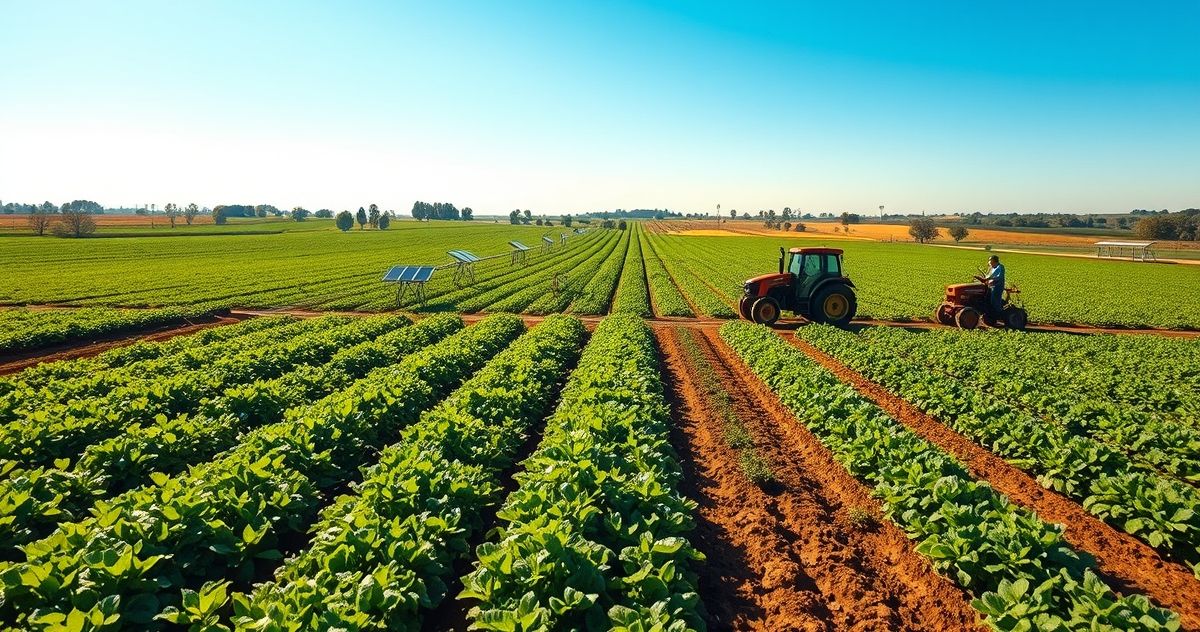Sustainable Farming Equipment Credit: Introduction and Purpose
The Sustainable Farming Equipment Credit is a tax incentive designed to support farmers and agricultural businesses in their efforts to integrate environmentally friendly practices. The primary purpose of this credit is to offset the costs associated with purchasing and using equipment that contributes to sustainable farming methods. By lowering the financial barrier to acquiring green technology, this credit encourages farmers to adopt practices that reduce environmental impact and increase energy efficiency, thus promoting long-term ecological health and sustainable agriculture.
Key Features and Components
Several key features define the Sustainable Farming Equipment Credit:
- Eligibility Criteria: Generally, the credit is available to farmers who invest in specific types of equipment deemed sustainable. This can include machinery that reduces soil erosion, equipment that minimizes water consumption, or technologies that lower greenhouse gas emissions.
- Qualifying Equipment: The list of qualifying equipment might include solar-powered irrigation systems, electric tractors, organic composting systems, and water-efficient drip systems. The exact equipment eligible for the credit can vary state by state or may be governed by specific federal guidelines if part of a broader federal initiative.
- Financial Benefits: The credit often covers a percentage of the total cost of the equipment, which could range from a minor discount to potentially covering 30-50% or more, depending on the equipment type and governing jurisdiction.
Filing and Compliance Requirements
Farmers interested in utilizing the Sustainable Farming Equipment Credit must adhere to specific filing and compliance requirements:
- Documentation: Purchasers must maintain detailed records of their equipment purchases, including receipts, specifications verifying the sustainability features, and any necessary certifications proving environmental compliance.
- Filing Process: Farmers will typically need to complete a specific form designated by the IRS or their respective state’s tax agency that details sustainable equipment expenditures. Additionally, this form must be filed concurrently with the entity’s annual tax return.
- Verification and Audit Compliance: Similar to other tax credits, there is a possibility of audits, where documentation proving the eligibility and actual use of the purchased equipment for sustainable farming practices may be required. Farmers should be prepared to show utilization records or explain how the equipment supports sustainable practices.
Penalties and Consequences for Non-Compliance
Failing to comply with the requirements of the Sustainable Farming Equipment Credit can lead to several consequences:
- Reclamation of the Credit: If it is determined that the equipment does not meet the necessary sustainability criteria or if there is insufficient documentation, the tax credit could be retroactively revoked, necessitating the repayment of any claimed credit.
- Financial Penalties: Additional fines or penalties might be levied for improperly claimed credits, especially if it is deemed to be an intentional misrepresentation.
Importance and Significance
The Sustainable Farming Equipment Credit plays a crucial role in financial and environmental domains:
- Environmental Impact: By incentivizing sustainable technology, the credit helps reduce harmful farming practices, leading to better soil health, reduced emissions, and increased conservation of natural resources.
- Financial Advantages: For farmers, the credit provides much-needed financial relief, making eco-friendly practices more accessible and viable economically. This shift often results in long-term cost savings through increased efficiency and reduced resource consumption.
- Policy Support: On a broader scale, this credit supports both federal and state-level environmental policies aimed at tackling climate change and promoting sustainable agriculture.
In conclusion, the Sustainable Farming Equipment Credit is an instrumental financial tool for farmers seeking to enhance their eco-friendly practices. It not only provides economic benefits but also aligns with environmental objectives, facilitating a collaborative approach towards sustainable development in agriculture.

